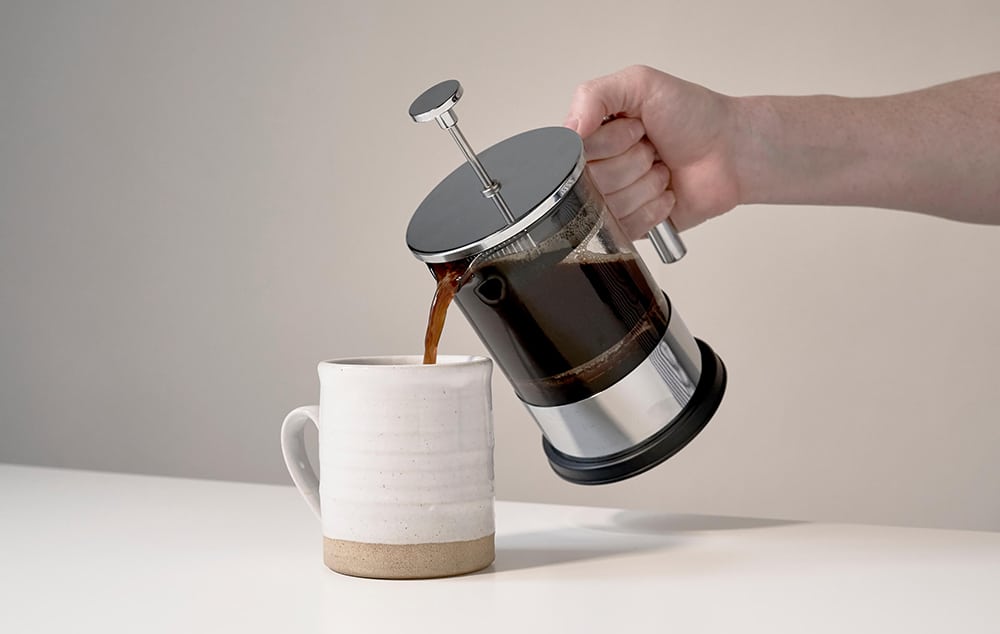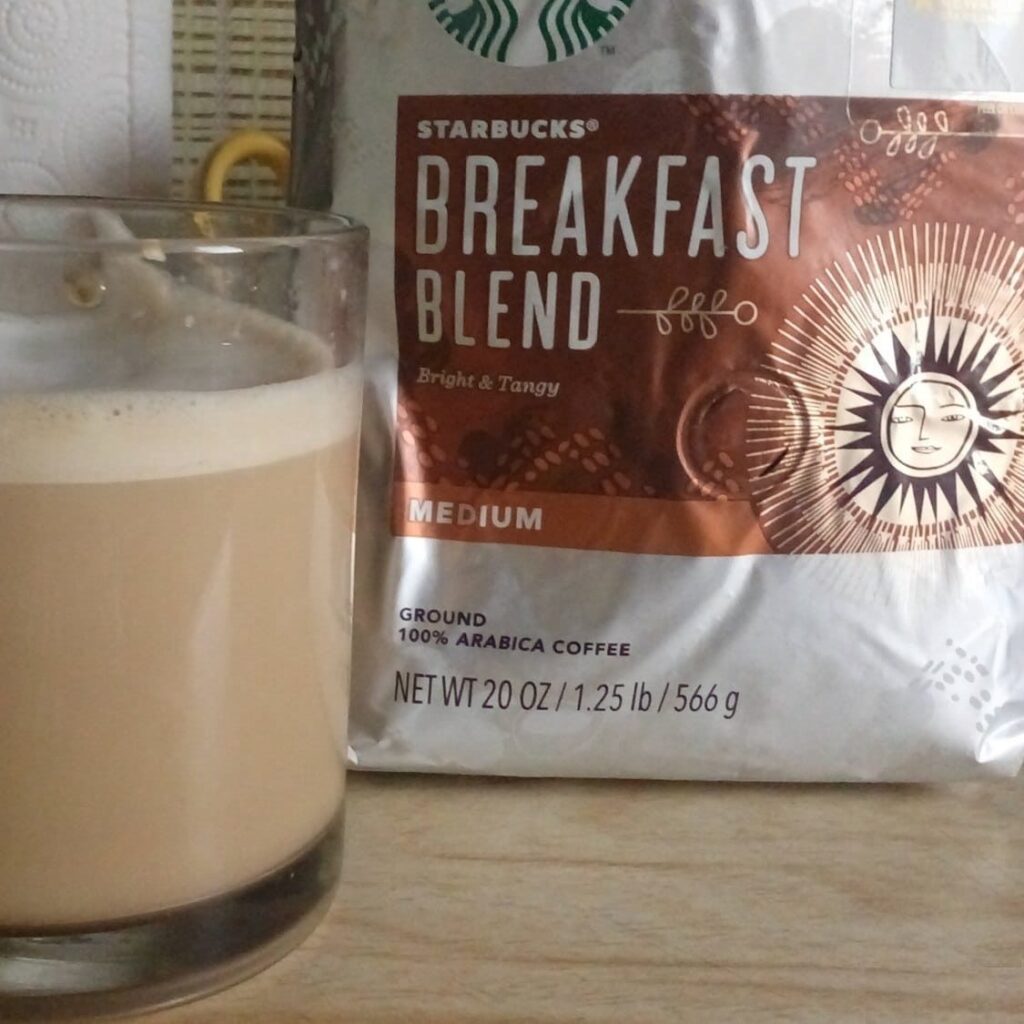

Coffee lovers all around the world like to expand their taste and go outside the box from the usual ground coffee. One of the ways they do this is with animal poop coffee, which is way different from the usual coffee processing procedure. Animal poop coffee involves feeding coffee beans to animals, getting it when they poop it out, and processing it, and then it becomes safe to drink.
Animal poop coffee has a lot of misinformation, controversies, and hype around it, but all types are known for their unique taste and expensive price tag. From cat and elephant poop coffee to bat and monkey poop coffee, there’s a lot to choose from.
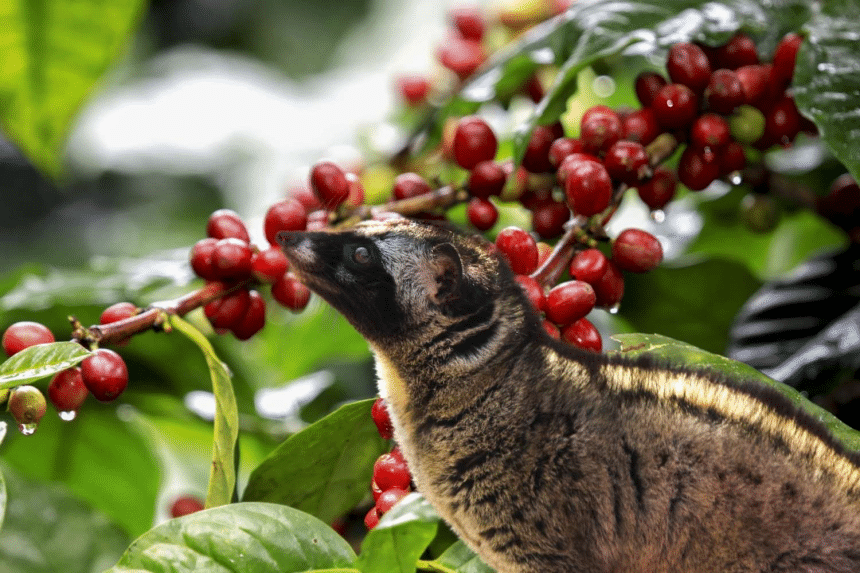
The idea of having animals eat the coffee beans and poop it out is so that their internal digestive system can cause some changes, specifically to the chemical composition of the beans. If you’re wondering how the beans remain intact when the animal eats them, keep in mind that they eat the pulp of the coffee cherries, leaving the beans whole and usable.
While the animal is digesting the coffee, the enzymes in its digestive system would reduce the acidity of the coffee and change the taste. It also removes the bitterness, leaving you with coffee that tastes mild, delicate, and mellow. Also, it’s the animals that pick their coffee, and since they are eating it for the sweet pulp, they choose only the biggest and juiciest coffee cherries. This means that when you drink animal poop coffee, you’re getting only the best selection of top-quality coffee beans, all naturally selected.
Many coffee enthusiasts are worried about contamination and other health-related issues when they hear about drinking animal poop coffee, but keep in mind that it’s very safe. For one, the coffee beans in the coffee cherries are not affected since the animals only eat and digest the cherries. Also, the coffee isn’t made right from the time the animal poops the coffee cherries out.
There is still a process to make the coffee drinkable, which includes washing, drying, processing, roasting at a high temperature, and then brewing it with nearly boiling water. By the time the entire process is over, all traces of bacteria and poop would be gone.
There are different animal poop coffees, including the popular Kopi Luwak from Indonesia, elephant poop coffee, monkey poop coffee, bat poop coffee, and bird poop coffee.
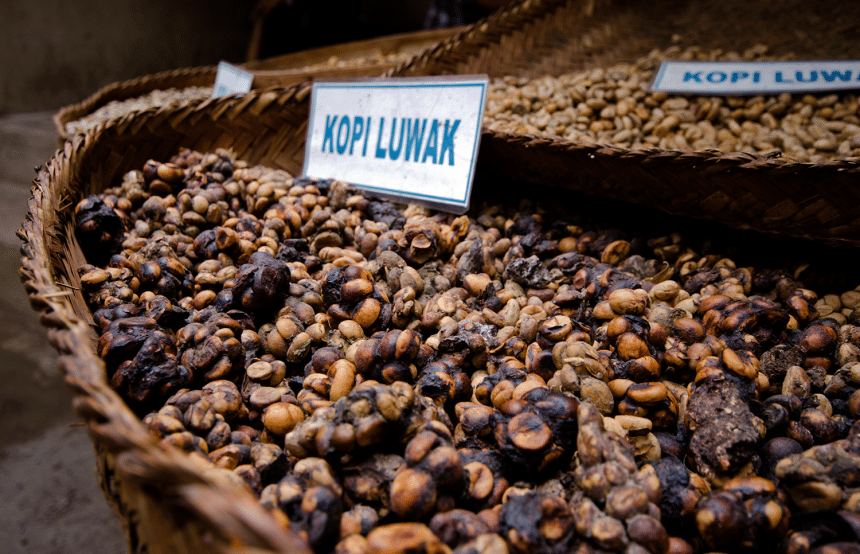
Also, during this time, Indonesia was exporting all the coffee that they made to Europe, so it was difficult for them to get many beans at a time. The locals and farmers started collecting the beans pooped out by the wild cats, selecting them, and exporting them. Thus, Kopi Luwak was formed.
Palm civets are Indonesian wild cats, also known as Luwak, which you can see in the name Kopi Luwak. In the process, the wild cats would eat ripe arabica coffee cherries and digest them partially, leaving the coffee beans untouched. Then, the coffee beans will be removed from the cat poop by hand.
During the process, only the skin and pulp of the coffee cherry are lost, so only the coffee beans are left in one piece. Once it has been collected, it would be harvested, washed, dried, and roasted before it enters into your cup. Palm civets are picky eaters, so they only leave you with the best selection of coffee beans.
Kopi Luwak coffee Trusted Source Kopi Luwak: Indonesia's rich cup or 'crappuccino'? - CNN.com If you are a coffee lover you might be tempted to pay for a cup of the most expensive coffee in the world. Indonesia’s velvety tasting brew, Kopi Luwak, gives new meaning to rich coffee. It can cost up to $50 per cup. edition.cnn.com is known for being smooth and having a unique taste. It also has an earthly flavor and balanced taste when you drink it, but there is no bitterness in the taste. But this cat poop coffee is more known for the story and origin that made it come to be than its actual taste. So, it’s not popular out of necessity anymore. There were also different issues of animal rights abuse Trusted Source Civet cat coffee: can world's most expensive brew be made sustainably? | Guardian sustainable business | The Guardian Coffee derived from the faeces of the civet cat has spawned a cruel industry. Will sustainable production leave a better taste? www.theguardian.com in the making of the animal poop coffee. It’s also incredibly expensive.
Now, the Kopi Luwak is one of the most expensive coffee in the world and is also a popular tourist attraction. Even with this, it can be widely purchased at different places. You can even buy the Kopi Luwak coffee from Amazon and other reliable online stores. The coffees come in different flavors like dark roast or honey.
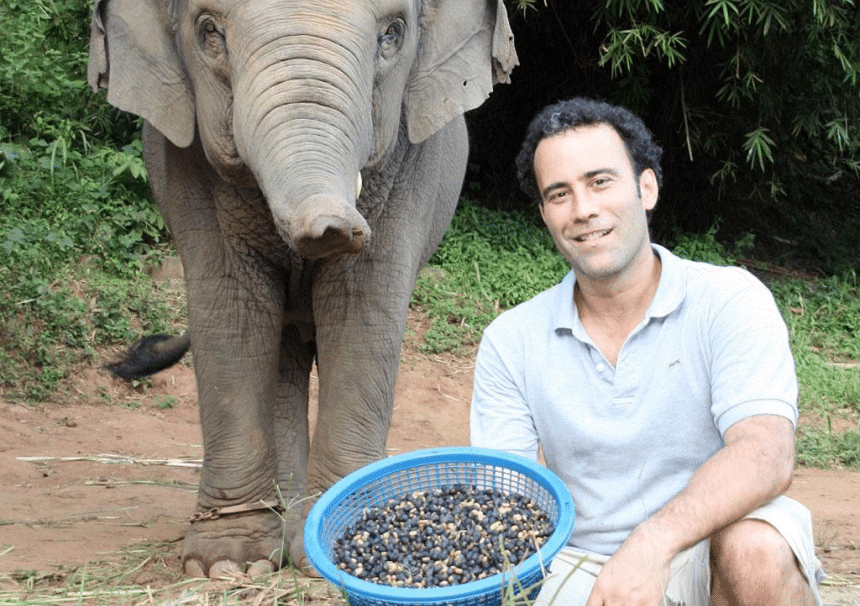
Although the general process of making the elephant poop coffee is similar to the one with the palm civet, the beans go through an ethnically controlled process. It is made with arabica coffee cherries, which are grown at amazingly high altitudes, adding to the fact that it is of high quality.
The elephants don’t pick the cherry themselves, but the farmers are the ones that pick it for them. Also, the coffee is mixed with the healthy diet of the elephants so that they remain healthy, unlike the case with the Kopi Luwak. Once the elephant digests it, the farmers will select the beans from the droppings and process the coffee beans.
The process of making the coffee beans is not efficient even if it’s ethical, and so to make just one pound of elephant poop coffee, you require up to 33 pounds. This is why it’s rare and sky-high expensive. Profits from the coffee beans are donated to organizations for elephant conservation. It is usually found in five-star luxury hotels because of how expensive it is, mainly in the Middle East and Asia.
The elephant poop coffee does not have a harsh, bitter taste and has a mellow taste that makes it similar to tea. It has a chocolatey and floral flavor, but sometimes, you can get a hint of spice, cherry, malt, leather, and grass.
The smooth taste and lack of bitterness in the elephant poop coffee originate from the fact that the greens consumed by the elephant contribute to the fermentation process. Just because elephant poop coffee is rare doesn’t mean it can’t be accessed. You can purchase it from Amazon if you want speed, although some people go straight to the site to buy it. Just keep in mind that the company sells primarily to hotels than individuals.
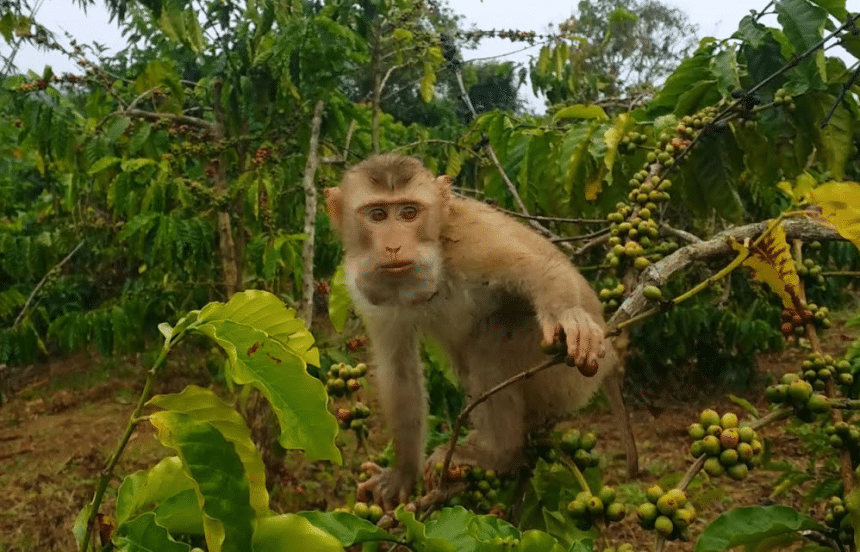
Even if this kind of coffee is called monkey poop coffee, there is no excretion involved in the process of making this coffee. The Rhesus monkey would chew on the coffee cherries, digest them partially with their saliva, and then spit them out.
The monkeys pick the coffee cherries by themselves, so expect an excellent selection of coffee beans when drinking monkey poop coffee. They usually prefer the ripest, sweetest cherries of the highest quality.
After the monkey spits it out and the beans are collected, they would be washed, processed, and dried. They are left with a grey color after processing. The taste of the coffee beans is changed because of the enzymes in the monkey saliva, and they are more affordable than most animal poop coffees.
Monkey poop coffee has an acidic and heavy-bodied taste. There is also slight bitterness in the taste, so you’re left with a strong but delicious taste. The taste profile of this coffee is diverse because of what the monkeys eat, and so you can expect hints of chocolate, citrus, vanilla, and nuts.
A cup of monkey poop coffee can cost you about $10, and although they are less expensive than most, they are still rare and costly. Each year, you will only see about 100 pounds available for purchase.
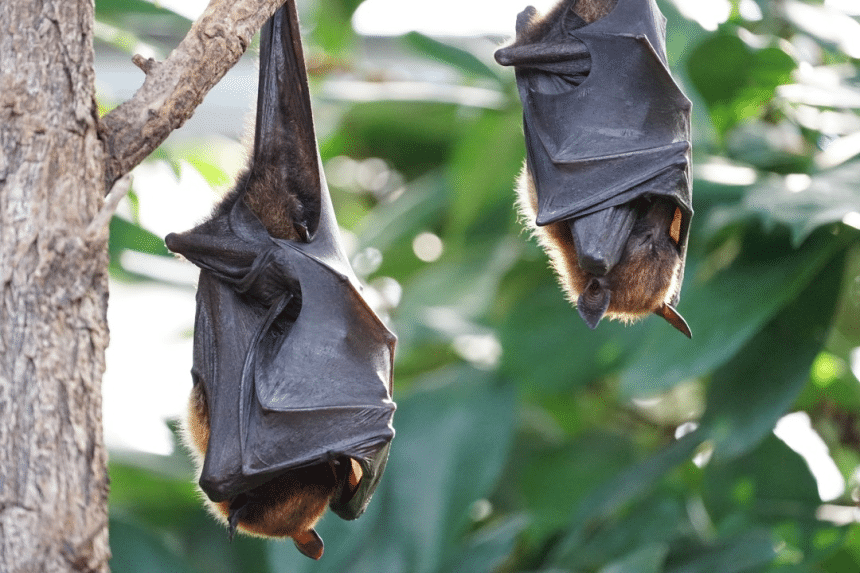
You can also find bat poop coffee in Madagascar and is often known as the African alternative to the Kopi Luwak. The bat poop coffee has a smooth, floral, sweet and fruity taste, and when you drink it, it leaves you with a pleasant aftertaste. The enzymes improve the flavor profile of the coffee beans. They are hard to find, regardless of how reasonably priced they are.
Bat poop coffee is collected from a particular species of bats, artibeus jamaicensis, and it can only be found in the south of Costa Rica. To process the coffee beans, they also pick them themselves and eat off the skin of the coffee cherry. After eating this, they lick the pulp but don’t finish eating the coffee beans. They also eat and remove the fruit, but they leave the cherry in place on the plant.
The coffee beans and chaff will be colored in the bat saliva after this, half-eaten and exposed. It would dry before being processed again. The enzymes in the bat saliva would alter the taste of the coffee. In 2020, only two tons of bat poop coffee were produced 2020 in Madagascar. Most of the demand for these coffee beans is in Japan and high-end restaurants and hotels.
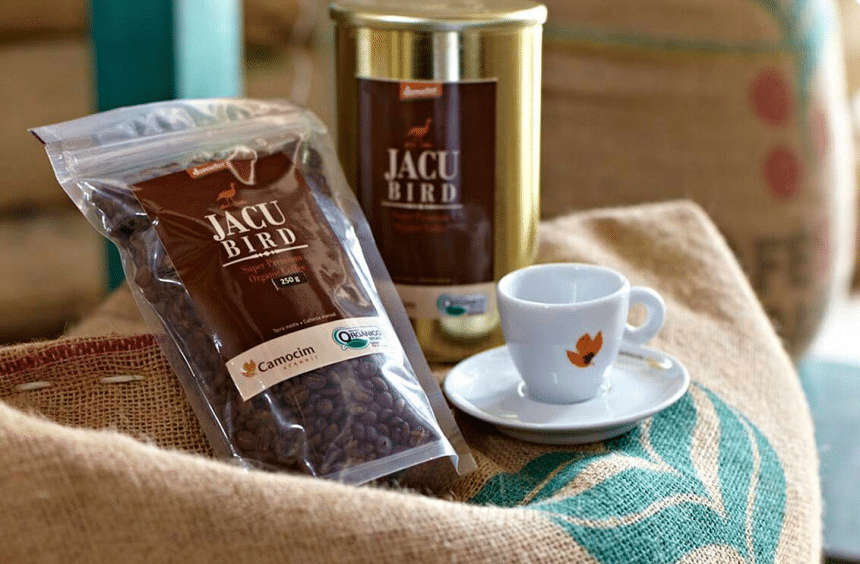
In 2009, something interesting happened to Henrique Slopper in Camocim, Brazil, who produced top-quality and organic coffee on his farm. One day, he saw Jacu birds eating the cherries from his coffee farm and noticed that they only went for the highest quality ones. So, when you get bird poop coffee, you can enjoy only the highest quality of beans.
In this situation, the Jacu bird would pick and eat the coffee cherries, and then the farmers can pick out the coffee beans from their poop. The beans will be partially fermented, and after being handpicked, they would be washed and dried before being used to make coffee. The birds are well taken care of, with a balanced and vegetarian menu. The greens and healthy food that they eat result in well-refined coffee beans.
The Jacu bird poop coffee is known to be similar to coffee processed with honey when it comes to its taste. The aftertaste is also pleasant, and there’s a nutty sweetness to be enjoyed as you drink it. There are also hints of molasses, star anise, brown bread, and milk chocolate.
Although the birds enhance the flavor of the coffee when they eat and poop it, they also increase the price. They are now sold for $330 per pound.
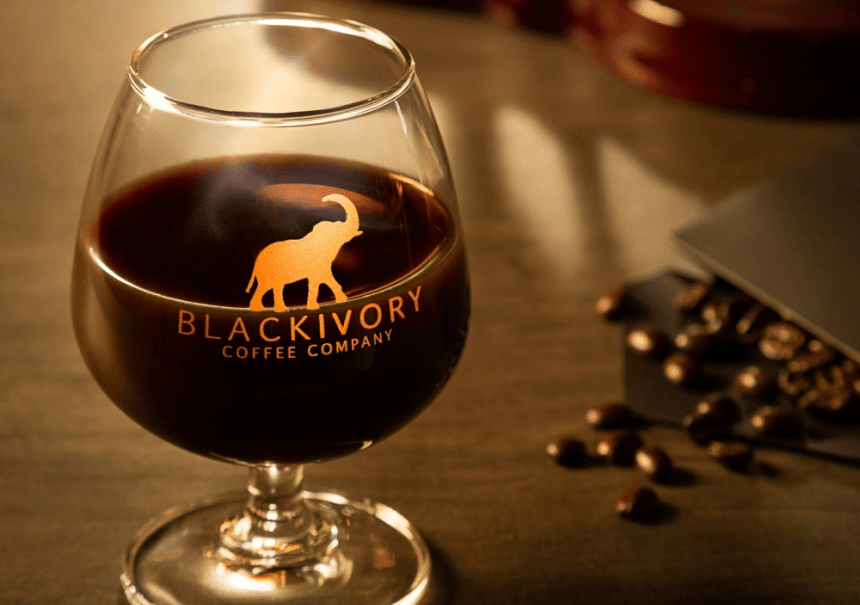
You might think that animal poop coffee is considered to be premium because animals naturally select them, but it’s mostly because they are rare. The animals cannot be forced to produce more than they do, so there’s a limited supply of this coffee, leading to the high price. The high price sometimes also means more demand.
Because of the high price, those making the Kopi Luwak coffee end up abusing and forcing the animals to make more to sell more. There’s also a lot of fraud in the animal poop coffee industry, with many people selling regular coffee as cat poop coffee.
But, with the high price, the question is whether it’s worth it or not. Do you think it’ll taste good because it’s delicious, or because it’s super expensive? Well, it all depends on the person. While some people like the distinct and unique flavors that they enjoy when they take animal poop coffee, others tell you that they don’t like the taste.
There are also more advanced ways to harvest coffee, meaning that coffee picked and made artificially might taste better than coffee picked and partially processed in animals. Some have also complained about the lack of bitterness and acidity in animal poop coffee. For those who like strong coffee, this kind of coffee can be seen as flat and too similar to tea. There’s also the problem of animal cruelty, especially in the case of the Kopi Luwak, which can make you uncomfortable while drinking coffee.
But, on the bright side, these coffees will give you a distinct taste if you’re looking to expand your coffee drinking experience. The selling point of these coffees is the stories behind them and the process of producing them. So, if you ever have a chance to taste any animal poop coffee drinks, you should go for it.
Also, if you can afford it, you can order them online or from other trusted sources. Whether it’s worth it depends on you and your budget – but you can expect rare flavors and a great experience that other coffee drinks can’t give you.
Apart from the exclusivity and uniqueness offered by animal poop coffee, there are also some health benefits that you can enjoy. For one, most animal poop coffees have low acidity, so if you have a weak stomach that makes it difficult for you to enjoy coffee, you don’t have to worry about that.
They are also known for their cancer-preventing properties, specifically the Kopi Luwak with colon cancer. They have other health benefits like helping with migraines, protecting from cognitive decline, protecting your teeth, having anti-bacterial properties, and offering psychological benefits. So, if regular coffee isn’t giving you what you need, you can enjoy drinking animal poop coffee.
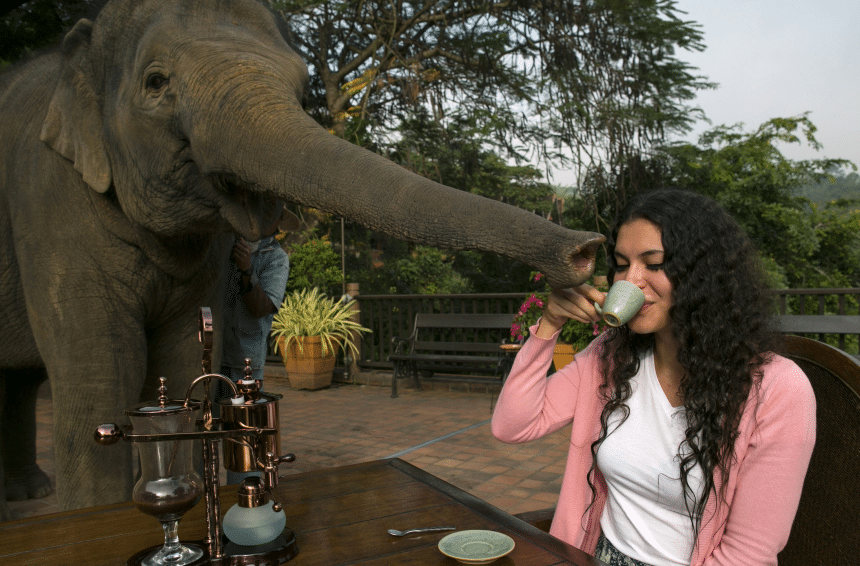
The Kopi Luwak coffee is only the most popular but not the rarest. Elephant poop coffee is sold mainly to five-star hotels, and you barely see any individuals buying the coffee for personal use. But the company has a section that sells coffee for private consumption by international customers.
Apart from those on our list, there is also the coati’s coffee. The coatis are an animal in the same family as the raccoon and can be found in Peru. So, the coffee that they produce is called Peruvian poop coffee, mishasho coffee, or uchunari coffee.
In this case, the coatis eat the coffee cherries and poop them out. The beans are picked out, and then processed. The coffee drink also has health benefits like the others. It also less bitter because of the digestive process and is known for having a unique and delicious taste.
There’s a lot to see and consider in the world of animal poop coffee, from the rarest and most expensive to the mildest and most socially responsible coffee drinks. Animal poop coffee is the perfect choice for any coffee enthusiast that has the budget to afford this type of coffee and, at the same time, is looking to expand their taste and give their taste buds something new.
If you’re interested in animal poop coffee after this guide, you can give it a try by purchasing some from a reliable source. If you’re one of those people that like the taste, you’ll probably buy it often.

